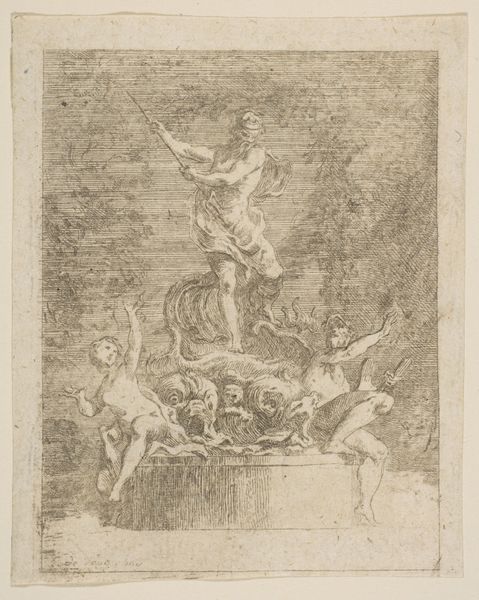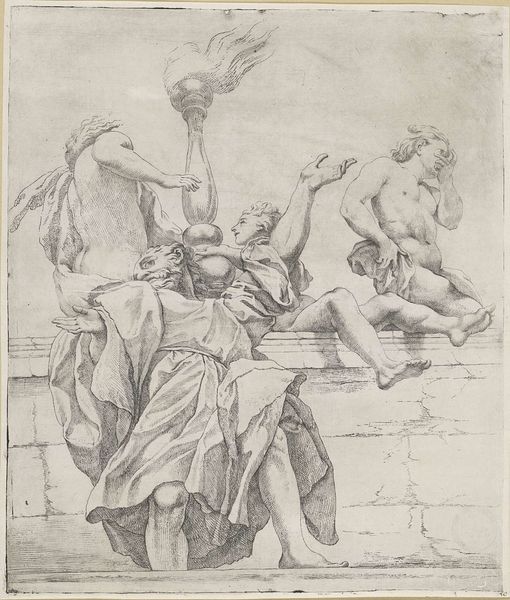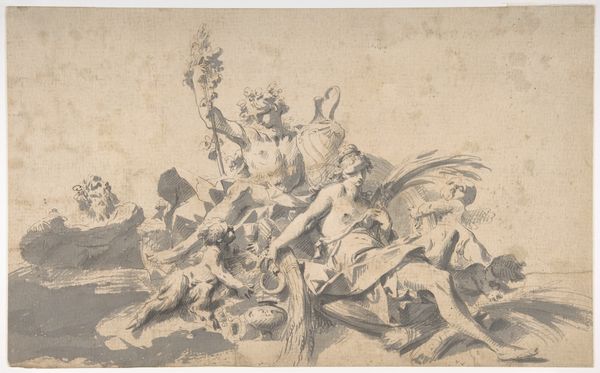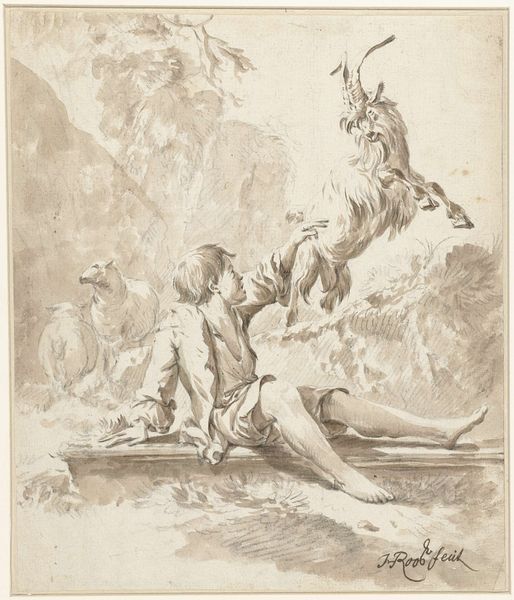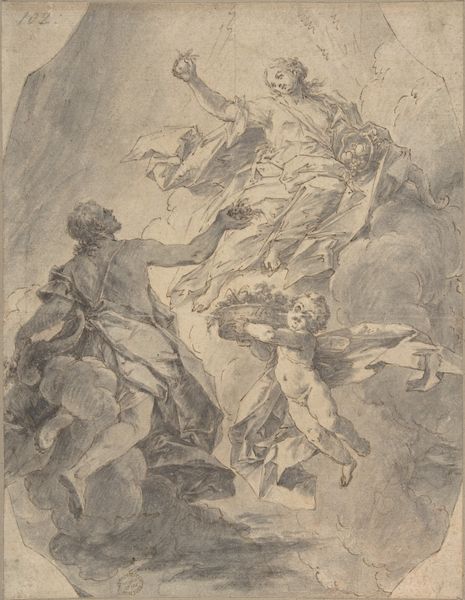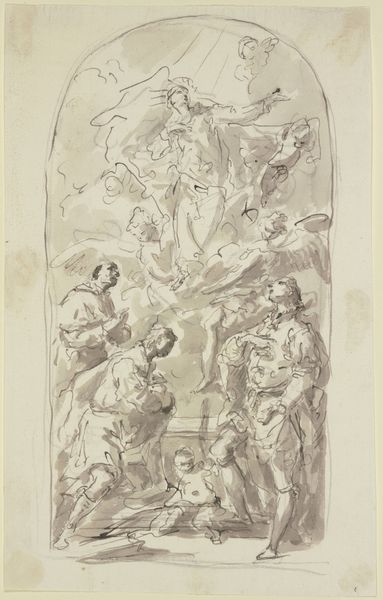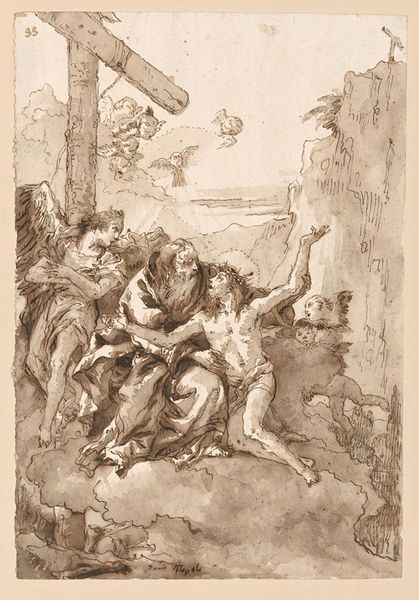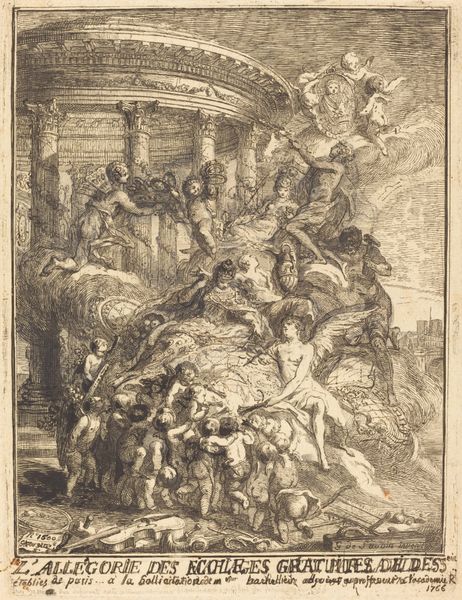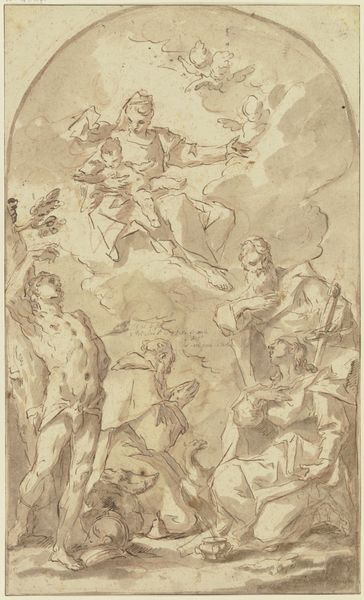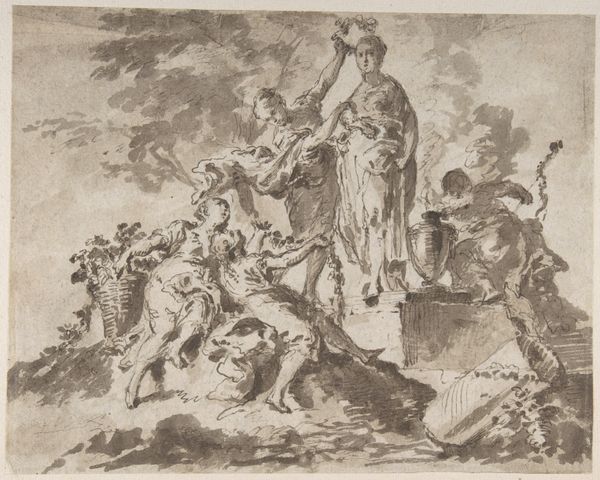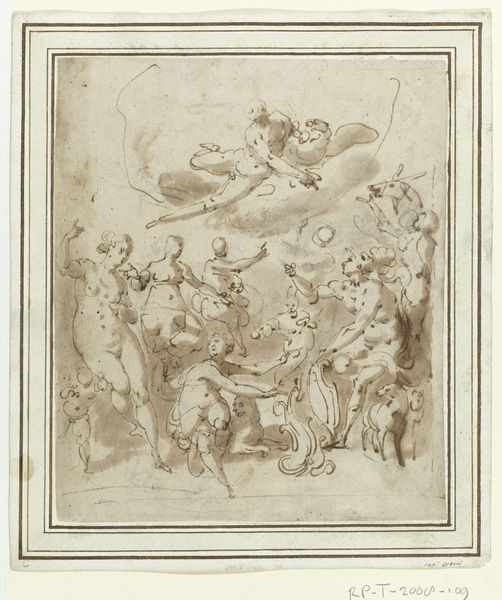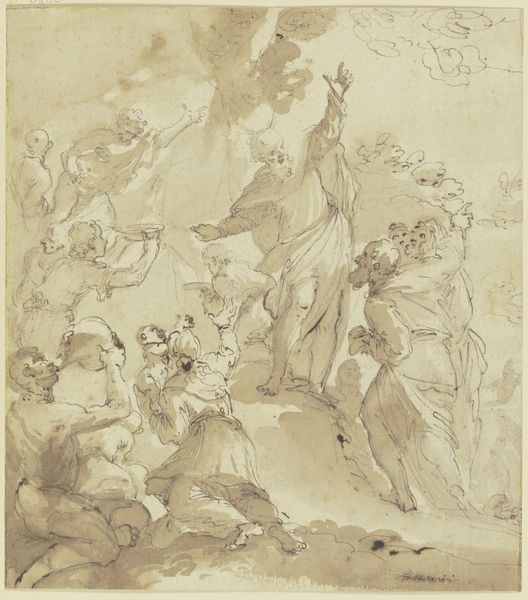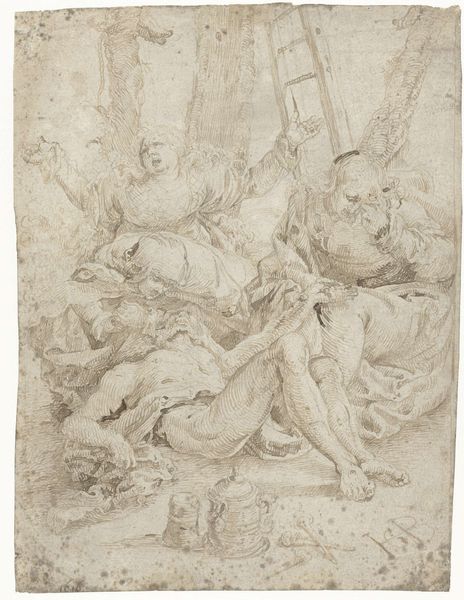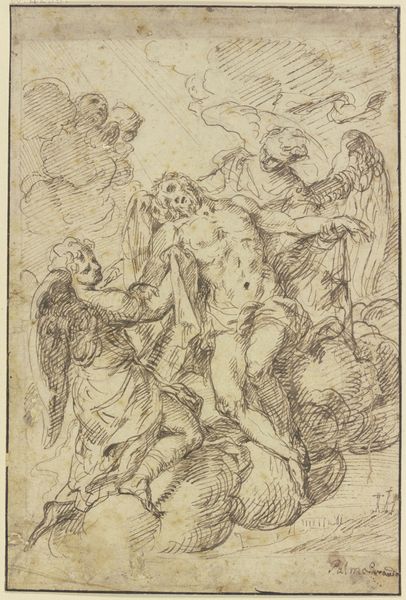
#
amateur sketch
#
toned paper
#
light pencil work
#
pencil sketch
#
incomplete sketchy
#
charcoal drawing
#
possibly oil pastel
#
underpainting
#
watercolour illustration
#
watercolor
Dimensions: height 347 mm, width 315 mm
Copyright: Rijks Museum: Open Domain
Editor: So, this is *The Raising of the Cross* by Leonaert Bramer. It looks like it was made sometime between 1606 and 1674, and it's currently housed in the Rijksmuseum. It's… unsettling. Almost a chaotic scene sketched in pencil. What strikes you about this piece? Curator: The sketch hits at a raw, almost primal emotional core through a symbol, really, or several. Think of the cross. Over time, it shifted from a symbol of brutal Roman oppression and imperial power, towards a symbol of Christian faith, but that doesn't eliminate the memories of horror associated with that symbol. Editor: That’s fascinating! So you’re saying even familiar symbols can hold contradictory meanings? Curator: Precisely! This drawing shows that duality powerfully. Bramer hasn't prettied it up or sanitized it. The figures straining, the rough lines… Do you see the incomplete rendering in places? Editor: I do. The figures in the background are very faint and almost ghost-like. Curator: Indeed, and that also carries weight. Who are these passive figures and what emotional states or feelings could be inferred when placed against the struggle to erect the cross? Is Bramer interested in representing the Passion itself, or perhaps commenting on a certain detachment or lack of feeling associated with such spectacles? Editor: Wow, I hadn't considered the background figures in that way. It makes you wonder what everyone is *really* feeling, and if there’s something lost in translation in the ways in which symbols can change. Curator: Yes! Visual language is so often inflected by history and human experience, and by extension collective memory. A drawing such as this highlights that in stark terms. Editor: This gives me a whole new perspective on considering how symbols, and responses to them, are more like a continuum than a fixed meaning. Thanks!
Comments
No comments
Be the first to comment and join the conversation on the ultimate creative platform.
